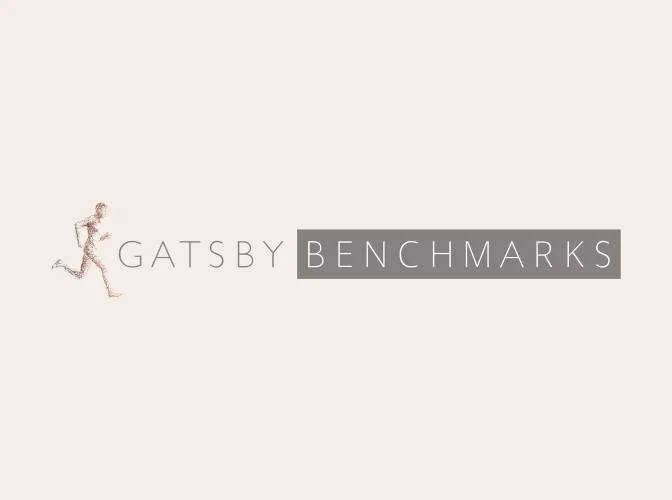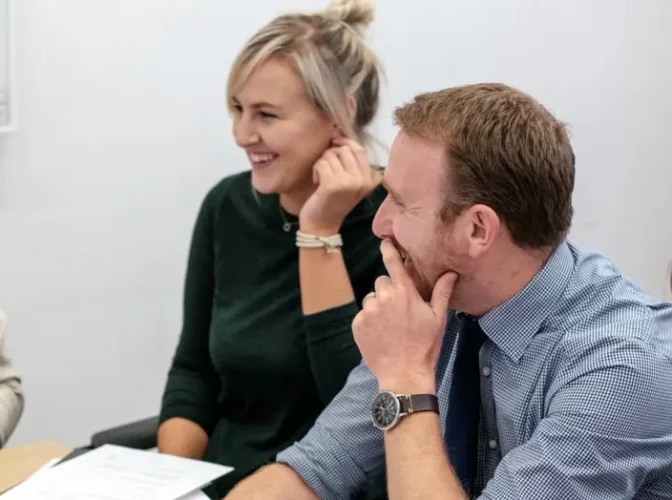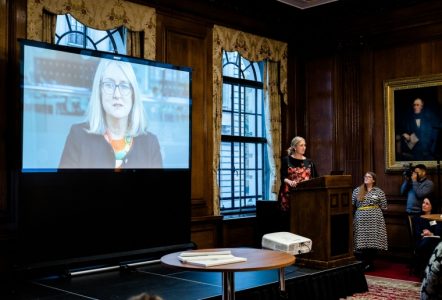The Gatsby Benchmarks are an evidence-based framework that defines world-class careers guidance for young people. Used by over 4,700 schools, colleges and independent training providers to shape their careers programmes, the benchmarks are central to our long-term commitment to improving careers guidance in England.

Why good careers guidance matters
As part of their journey through education, we believe all young people should have equity of information, opportunity and experiences to help them make ambitious and fulfilling choices for their futures.
All young people, whatever their background, deserve good careers guidance. It enables them to maximise their talents, realise their ambitions and, ultimately, secure a rewarding career. Young people without strong social or family links to different careers benefit most; good careers guidance drives social mobility and contributes to social justice.
Preparing young people for the labour market helps employers and governments address skills gaps and improve productivity.

About The Gatsby Benchmarks
First published in 2014, the eight Gatsby Benchmarks provide a clear and robust framework which more than 90% of schools and colleges now use to structure their careers programmes. The average number of benchmarks achieved by these institutions has risen from 1.8 out of eight in 2017 to 5.8 out of eight in 2024.
The benchmarks form the bedrock of the government’s strategy to provide high-quality careers guidance to all young people. All schools, colleges and – as of September 2025 – independent training providers (ITPs) in England are expected to use the framework to plan their careers provision for young people.
Our dedicated Gatsby Benchmarks website explores each benchmark in detail and houses information and inspiration on implementation for leaders and practitioners.
The eight benchmarks

Impact of the framework on careers education
Thanks to the hard work, dedication and collaboration of schools, colleges, ITPs and the wider careers guidance community, careers education has been revolutionised since the launch of the benchmarks, improving the life chances of millions of young people.
Evidence strongly shows that embedding good career guidance, underpinned by the benchmarks, into the heart of school, college and ITP strategies improves young people’s life chances and contributes to whole-institution improvement. In institutions with more benchmark activity, students have increased career readiness, higher aspirations and are less likely to be NEET (not in education, employment or training) at age 16 and 18.

Ensuring lasting change
Schools, colleges and ITPs are making good career guidance happen, but they cannot do it alone. We work closely with the Careers & Enterprise Company, Department for Education and other national stakeholders – as well as educators in the classroom and in leadership – to ensure that the right support and systems are in place for every institution to sustainably achieve the benchmarks for their young people.
To stay informed about our work email careerguidance@gatsby.org.uk to be added to our stakeholder communications list.
The Gatsby Benchmarks have transformed how we view careers and how we provide careers guidance for our young people. They are a fantastically powerful tool in preventing NEET, developing multi-agency approaches with partners, and rethinking our approach to what is possible with employers and workplaces.
Our Gatsby Benchmarks work in action
The Gatsby Benchmarks were updated in 2024. The refreshed benchmarks retain what works – the eight benchmarks titles remain unchanged – but introduce important, practical refinements based on new evidence and two years of consultation and feedback. The updates strengthen key areas across five themes:
- Careers at the heart of education and leadership
- Inclusion and impact for each and every young person
- Meaningful and varied encounters and experiences
- Focusing on the use of information and data
- Engagement of parents and carers
This benchmark review reinforced how critical the stability, clarity and ambition offered by the benchmarks has been for institutions – we are committed to ensuring the updated framework remains the consistent core of national career guidance policy.
We are working closely with Careers Leaders, Headteachers, Principals and their leadership and governance teams to ensure the changes are understood and are embedded into the practice of all schools, colleges and ITPs.
As the champions of good career guidance, we listen to the sector and invest in evidence-informed solutions and support in response. The experiences and expertise of practitioners and education leaders have been central to the evolution of the benchmarks and the delivery infrastructure that supports them.
We coordinate a growing and active network of Gatsby Benchmarks champions who share their own experiences of adopting the updated framework across local, regional and national platforms.
Recognising the particular importance of good career guidance for young people with special educational needs and disabilities (SEND), Good Career Guidance: Perspectives from the SEND Sector, developed in partnership with the CEC and Disability Rights UK , details how leading practitioners and national experts have successfully used the benchmarks to deliver high-quality careers provision for students with a wide range of additional needs and disabilities.
Careers leaders consistently report that supportive senior leadership is vital to the delivery of good career guidance. We are working to ensure that all school, college and ITP leaders recognise the essential role of careers and empower their Careers Leader to deliver an effective careers programme.
In partnership with the CEC and National Institute of Teaching, we are embedding careers into National Professional Qualifications for leaders, a qualification most leaders achieve prior to taking on a headship.
High-quality labour market information (LMI) is critical to delivering the Gatsby Benchmarks and ensuring that careers guidance is robust, relevant, and informed by reliable data.
With the use of data a core theme of the updated benchmarks, we are committed to identifying and supporting improvements in the quality and availability of LMI so young people, with the support of their parents, carers, teachers and careers advisers, can make informed decisions about their futures. Previous commissioned research has involved mapping the LMI sources available to young people, and speaking to them and their intermediaries about their experiences and preferences regarding LMI.
Benchmark 8 specifies that all young people should have at least one personal guidance meeting by age 16 and a further one-to-one meeting with a careers adviser by age 18. We are committed to ensuring there is a sufficient and well-trained workforce of professional careers advisers to deliver this benchmark.
Work to date includes a collection of Personal Guidance-focused research looking at the makeup of the careers adviser workforce and trends in personal guidance practice in schools, Further Education and special schools.
Our workforce research was most recently updated in 2024.
In partnership with the CEC, we ensure educators have the tools they need to track, evaluate, communicate and continuously improve their careers programmes.
This includes:
- The development of the Compass and Compass+, online self-evaluation tools, designed in collaboration with a host of national organisations to enable Careers Leaders to plan, assess and report on their careers programmes
- Supporting a pilot of the CEC’s Careers Impact System, which uses peer-to-peer and national specialist reviews to improve and quality assure careers provision
We are supporting the CEC to refresh both Compass tools to enable progress to be measured against the updated benchmarks.
Both the updates to the benchmarks and our Talking Futures campaign encourage the embedding of parent and carer engagement into careers programmes. We are partnering with the CEC to explore the creation of a digital tool to track parent and carer engagement with career guidance which would give careers leaders useful data about their parent and carer community to inform their delivery.
The Gatsby Benchmarks set a vital standard for careers guidance, empowering young people to explore their potential and gain the skills they need. We are committed to strengthening this foundation and breaking down the barriers to opportunity so that all young people, regardless of their background, have access to the high-quality guidance and support they need to succeed and navigate their future with confidence.
Reports & publications
Good Career Guidance: The Next 10 Years
This report presents the latest Gatsby Benchmarks framework. It outlines what is staying the same and what updates have been made, referencing the evidence we used for each update, alongside examples of impressive practice we have seen in action
Author(s)
Gatsby Charitable Foundation
Good Career Guidance : Summary
This eight-page summary leaflet sets out Sir John Holman’s eight benchmarks that identify different dimensions of good career guidance. It also highlights the benefits and costs of implementing the benchmarks.
Author(s)
John Holman
Good Career Guidance : Perspectives from the SEND sector
A set of expert perspectives to inspire Careers Leaders, teachers and all those working with young people with special educational needs and disabilities to use the Gatsby Benchmarks to create a strong career guidance programme for each and every young person.
Author(s)
The Gatsby Charitable Foundation


